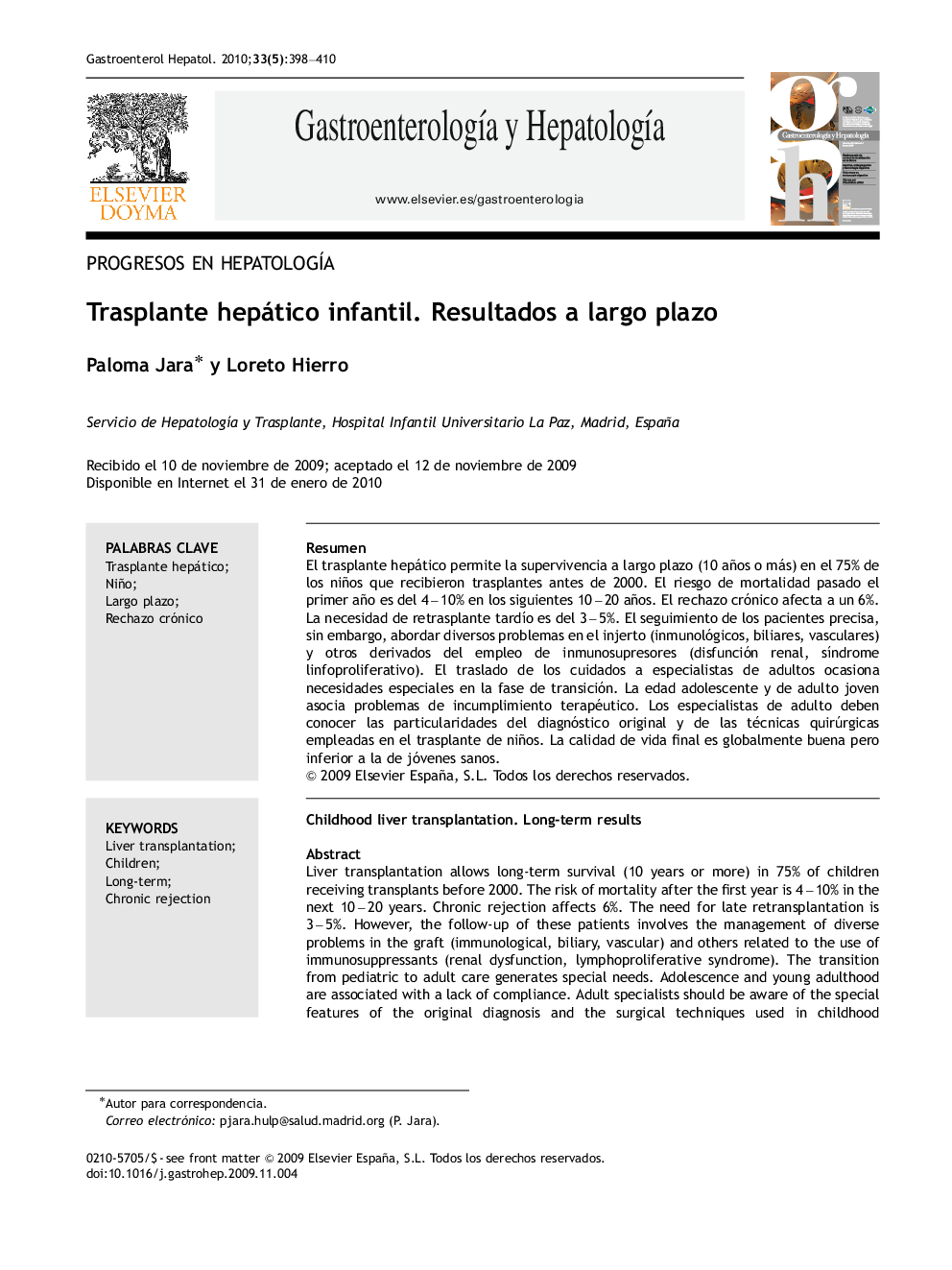| Article ID | Journal | Published Year | Pages | File Type |
|---|---|---|---|---|
| 3288327 | Gastroenterología y Hepatología | 2010 | 13 Pages |
Abstract
Liver transplantation allows long-term survival (10 years or more) in 75% of children receiving transplants before 2000. The risk of mortality after the first year is 4Â -Â 10% in the next 10Â -Â 20 years. Chronic rejection affects 6%. The need for late retransplantation is 3Â -Â 5%. However, the follow-up of these patients involves the management of diverse problems in the graft (immunological, biliary, vascular) and others related to the use of immunosuppressants (renal dysfunction, lymphoproliferative syndrome). The transition from pediatric to adult care generates special needs. Adolescence and young adulthood are associated with a lack of compliance. Adult specialists should be aware of the special features of the original diagnosis and the surgical techniques used in childhood transplantation. Final quality of life is good overall but is lower than that in healthy young persons.
Related Topics
Health Sciences
Medicine and Dentistry
Gastroenterology
Authors
Paloma Jara, Loreto Hierro,
